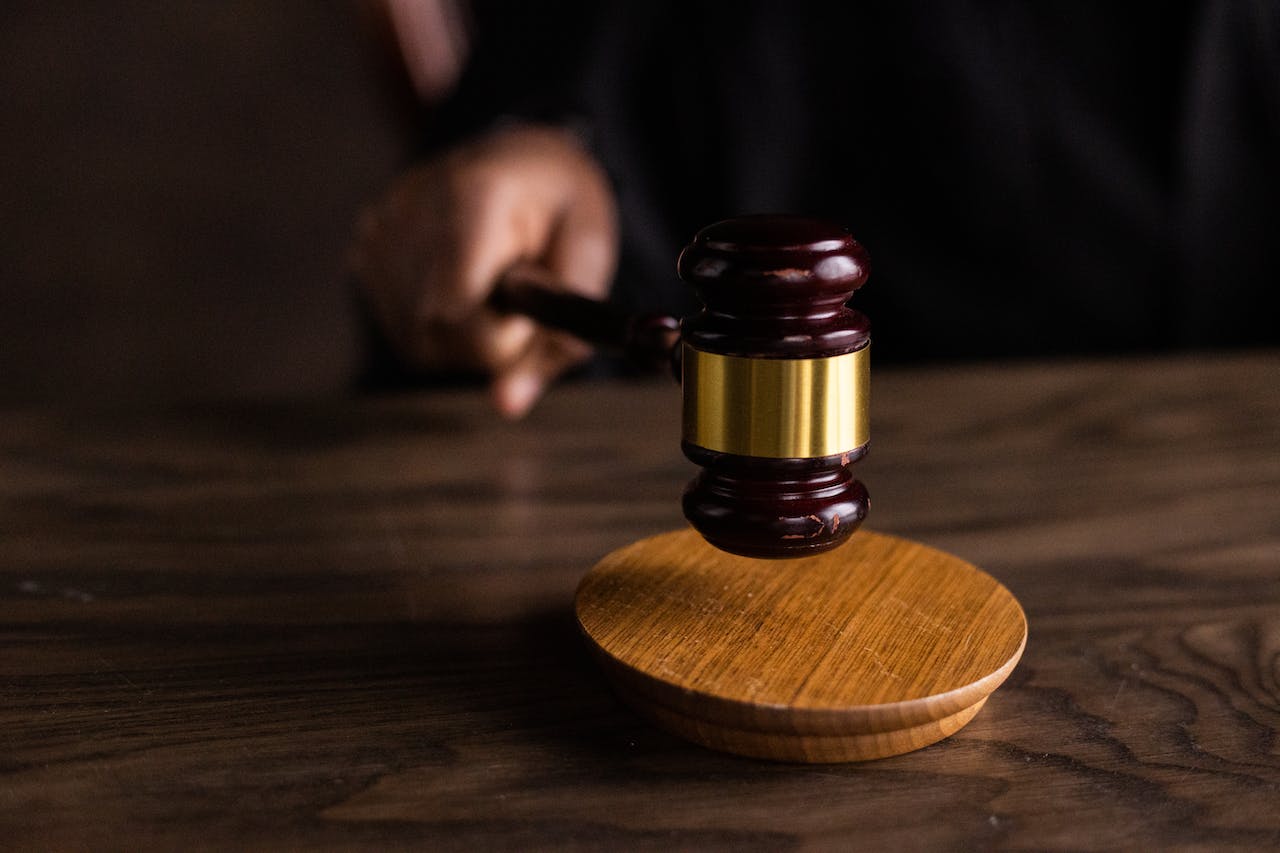Dealing with a legal issue can be daunting. It’s like navigating through an unfamiliar terrain, full of potential pitfalls and unknowns. But what if you had someone who could guide you, making the journey less intimidating? This is where finding the right lawyer comes into play.
A good lawyer not only has mastery over law but also possesses skills to negotiate complex legal systems. They advocate for your rights while providing strategic advice tailored to your situation. Thus, knowing how to find the best lawyer for your case becomes paramount in ensuring favorable outcomes.
In this comprehensive exploration, we’ll dive deep into various facets such as assessing your specific legal needs based on case type and understanding different fee structures that lawyers use. We will shed light on how personal rapport impacts a lawyer-client relationship and discuss methods of sourcing reliable recommendations and referrals when scouting for potential lawyers.
Table of Contents:
- Understanding the Importance of Finding the Right Lawyer
- Assessing Your Legal Needs and Identifying Case Type
- Researching and Gathering Information about Potential Lawyers
- Evaluating the Lawyer’s Qualifications and Experience
- Assessing Communication Skills and Personal Rapport
- Considering Financial Factors in Hiring a Lawyer
- Getting Recommendations and Referrals
- FAQs in Relation to How to Find the Best Lawyer for Your Case
- Conclusion
Understanding the Importance of Finding the Right Lawyer
Finding a suitable legal professional for your case isn’t just about obtaining counsel, but rather it’s about wading through intricate lawful matters and accomplishing desirable outcomes. Regardless of whether you’re looking for the best personal injury lawyer, best employment attorney, or any other practice there will be a number of details you may want to take note of. With almost one million lawyers in America today, making an informed decision requires understanding how to identify what makes a lawyer ‘good.’
The Role of a Lawyer in Legal Cases
A competent lawyer serves as your guide in deciphering intricate legal procedures and ensuring that your rights are well represented. Their expertise can spell the difference between winning or losing cases. They’re skilled interpreters of law who help you comprehend its implications on your situation.
An experienced attorney offers strategic advice grounded on their deep understanding of both precedent and current legislation – skills honed over years spent studying law and passing rigorous bar examinations.
Why Choosing the Right Lawyer Matters
Selecting an effective defense counsel has serious repercussions beyond mere representation – it determines whether justice will be served favorably or otherwise. For instance, if faced with criminal charges, having an astute criminal defense lawyer could mean acquittal instead of acquiring a permanent criminal record.
If you’re dealing with personal injury claims, aligning yourself with a proficient personal injury attorney could lead to receiving rightful compensation versus settling for less than deserved. So let’s stress this again: choosing rightly matters.
To find these adept attorneys we speak so highly off; we suggest using platforms like Avvo, which gives detailed information about nearly every practicing U.S.-based advocate – from general practice ones right down to those specializing within niche sectors. This ensures potential clients connect only with top-tier professionals suited best for their specific case types – a critical step towards resolving any pending legal problems effectively.
Choosing the right lawyer isn’t just about securing legal advice. It’s also vital for dealing with complicated matters and getting positive results. A skilled attorney acts as your guide, a translator of law, and a strategic advisor whose know-how can greatly affect the outcome of your case. Don’t forget that making a smart choice carries serious weight – it could be the difference between being acquitted or having a criminal record, or receiving rightful compensation instead of settling for less.
Assessing Your Legal Needs and Identifying Case Type
Determining the nature of your legal problem is crucial. Whether you’re dealing with a personal injury, navigating through criminal cases or planning your estate, it’s vital to understand the specifics of your case type. Lawyers often specialize in various areas such as bankruptcy, contract law, criminal defense, estate planning, immigration, and intellectual property among others.
You may have found yourself needing help from family members for their insights on certain legal matters before – this might be due to real estate issues or even requiring general assistance during a trying time. These experiences are why it’s essential to assess our needs carefully and identify the appropriate field of law involved in our cases.
Take advantage of resources like LegalZoom, which can give detailed information about practice areas along with professional backgrounds of lawyers suited for specific types of legal problems. This step helps make an informed decision while also narrowing down potential options based on expertise required.
Navigating Through Personal Injury Cases
If you’ve been injured because someone else was negligent or intentional acts led to harm inflicted upon you – that’s where personal injury lawyers come into play; they advocate for victims who suffered physical damages due to other parties’ actions.
Criminal Cases Need Special Attention
In situations involving violations against public laws constituting crimes such as thefts or assaults amongst others – a skilled criminal defense lawyer will ensure that your rights remain protected throughout proceedings since these could potentially lead towards hefty penalties if not handled properly by experienced counsel.
Estate Planning For Peace Of Mind
To avoid future disputes within families over assets distribution after one passes away – consider seeking advice from attorneys specializing in Estate Planning so everything is legally organized, ensuring peace of mind for everyone involved.
Real Estate Issues Require Specialized Knowledge
In case you’re dealing with property transactions such as sales or acquisitions – real estate lawyers are best equipped to handle legalities related to these areas. They’ll make sure all documentation is in order and your interests remain safeguarded during negotiations.
Understanding the specifics of your legal issue is vital in finding the right lawyer. Specialized areas like personal injury, criminal defense, estate planning or real estate each require their own expert counsel. Use resources such as LegalZoom to help pinpoint potential lawyers based on their expertise and experience.
Researching and Gathering Information about Potential Lawyers
Finding the right legal help starts with comprehensive research. A key part of this process is understanding how to use online platforms effectively, a skill that can be pivotal in locating prospective lawyers who may fit your needs.
Using Online Platforms for Research
The internet offers numerous resources for evaluating potential lawyers. Search engines serve as an excellent starting point but bear in mind their results are broad and often not specific to law firms or legal services.
To narrow down your search, consider using lawyer referral services offered by local bar associations. These provide curated lists of attorneys based on specialty areas making it easier for you to find someone well-suited for your case. But remember, like any other service, lawyer referral services vary in quality.
Besides these options, also leverage review sites dedicated specifically to attorney evaluations such as Better Business Bureau (BBB). This platform allows potential clients like yourself to read real-time reviews about law firms helping you make more informed decisions when selecting a counsel.
Paying attention at client reviews here will offer valuable insights into an attorney’s professional conduct which includes their track record, whether they’re generally considered good standing members of the bar association’s community or have instances of misconduct against them – all vital information before taking up free consultation offers from any firm.
In addition to searching and reading reviews online, don’t underestimate personal referrals too. Someone else’s recommendation might lead you directly towards experienced lawyers specializing exactly in what you need.
Last but not least; always verify facts presented on websites through official sources where possible such as the state Bar Association directories ensuring accuracy before making a final decision.
When hunting for the best lawyer, start with broad online research and refine using resources like local bar association referral services. Leverage review sites, pay close attention to client feedback about professional conduct, and consider personal referrals. Always double-check facts from official sources before making your final choice.
Evaluating the Lawyer’s Qualifications and Experience
Finding a competent lawyer is not just about their charisma or eloquence. It goes beyond that to assessing their qualifications, experience, track record, and standing with the bar association.
Checking a Lawyer’s Track Record
A potential lawyer’s track record offers vital clues about his or her capabilities. The number of cases won gives an insight into the attorney’s ability to argue convincingly in court while representing clients effectively.
But don’t stop at case wins; you should also check for any disciplinary actions taken against them. This information can be found through public defender offices or legal aid organizations which keep such records.
Remember that only about 50,000 lawyers have sufficient training and experience in small business law – a key stat to bear in mind when seeking out attorneys who practice law specifically tailored towards businesses.
Determining Educational Background
The school where your prospective attorney received their legal education plays a significant role as well. A degree from a top-tier law school may suggest rigorous academic training and strong intellectual capability but it isn’t everything. You need someone whose skills translate effectively into practical courtroom strategies too.
Assessing Specialization Areas
In addition to general practice areas like criminal defense or estate planning, some lawyers further specialize within these fields offering more specific expertise on particular issues. This specialization could mean they’re better equipped to handle complex situations pertaining to those areas compared with other attorneys who might take on a broader range of cases across different domains.
Gauging Bar Association Standing
Your final decision should always include verifying whether your chosen counsel maintains good standing with the local bar association. A reputable professional will typically be listed in recognized legal directories and carry a clean criminal record, assuring you of their credibility.
Remember that choosing the right lawyer is about more than just picking someone with a degree. It’s about finding an experienced lawyer who can offer strategic advice based on their expertise, helping you navigate through your legal problems successfully.
Choosing the best lawyer for your case isn’t just about their eloquence or charisma. It’s essential to evaluate qualifications, experience, and track record. Consider their specialization areas, educational background and standing with the bar association. Remember that an effective attorney not only possesses strong academic credentials but can also translate these skills into practical courtroom strategies.
Assessing Communication Skills and Personal Rapport
Your lawyer should be more than just a legal guide. They should be someone with whom you can exchange ideas effectively, grasp your requirements and build a trusting relationship when discussing delicate matters.
Communication skills are vital in the lawyer-client relationship. The lawyer must be able to not only understand the law, but also explain it in a clear and concise manner. After all, if they can’t articulate their thoughts or understand your questions, how can they effectively represent you?
A research conducted by the American Bar Association has discovered that inadequate communication is a major source of grievances against attorneys.
Evaluating Your Lawyer’s Communication Skills
To assess a potential lawyer’s communication skills, pay attention during your initial consultation. Are they listening attentively? Do they give clear answers to your questions? Can they explain complex legal concepts in a way that makes sense?
If emails go unanswered or phone calls aren’t returned promptly, consider it a red flag about their commitment level. Remember: good communicators respond timely and keep clients informed every step of the way.
Gauging Personal Rapport With Potential Lawyers
Beyond technical competence and effective communication lies another crucial aspect – personal rapport. This isn’t merely about finding someone pleasant or likable but rather identifying an attorney whose approach aligns well with yours.
You might prefer someone aggressive or perhaps somebody patient and empathetic fits better depending on what kind of support you need throughout this process.
Considering Financial Factors in Hiring a Lawyer
Hiring the ideal attorney is more than just locating an individual with the requisite knowledge and background to represent you; it necessitates being aware of your financial obligations, including consultation fees, retainer charges, and hourly rates. It also involves understanding your financial commitments such as consultation fees, retainer fees, and hourly rates.
Navigating Different Fee Structures
The fee structure offered by lawyers can significantly impact your overall legal costs. Some may offer a flat rate for specific services or operate on a contingency basis, especially in personal injury cases. The hourly rate of lawyers in the US typically ranges from $100 to $400, depending on their location and expertise.
It’s crucial that you discuss these cost factors upfront before deciding to hire a particular attorney. Lawyers should be transparent about how they bill their time and any additional charges like court filing fees or expenses related to case preparation.
You might want to ask if they offer free consultations before signing any agreement because this gives you an opportunity not only to understand your potential legal costs but also gauge whether it’s worth investing your money based on the initial strategic advice provided during this meeting.
In addition, take note of what exactly is covered under retainer fees if applicable; it usually includes office time spent researching your case or communicating with opposing counsel among other tasks needed for representation. LegalZoom provides further insights into common practices around legal billing which could help make sure you’re getting value for money from whoever represents you legally.
Making Informed Decisions About Legal Costs
Above all else, remember that while hiring cheap attorneys might seem tempting, pay attention to the long-term implications involved here – lack of experienced lawyers often translates to lower quality service, ultimately resulting in unfavorable outcomes in the courtroom, thus making the whole process costly in the end.
Don’t be afraid to negotiate fees with prospective lawyers. Many are open to discussions about their fee arrangement, especially if you’re clear about your financial constraints and the value they bring in resolving your legal problems effectively.
A final decision on hiring should always consider these financial factors. But don’t forget, a lawyer’s expertise, track record, and other qualities are equally important.
Picking the right lawyer isn’t only about their abilities and experience, it’s also key to understand your financial commitments. You need a clear view of all costs from the get-go – consultation fees to hourly rates. Don’t shy away from asking for clarity on how they charge for their time and any additional expenses. Feel free to negotiate on fees, but bear in mind that lower cost doesn’t always translate into better service quality.
Getting Recommendations and Referrals
Locating the ideal lawyer may not be a straightforward process. However, reliable recommendations and referrals can be incredibly helpful. One of the most common sources for these are personal references from people you trust who have had similar legal issues.
Studies show that personal references can often lead to finding highly competent lawyers because individuals usually recommend professionals based on their positive experiences with them. But don’t stop there; broaden your search by tapping into professional referral services as well.
Avvo, for instance, offers detailed information about nearly every practicing attorney across the country – this includes client reviews which give insights into other clients’ experiences with prospective lawyers. You could also consult your local bar association’s directory or referral service to get a list of lawyers in good standing within your area.
Tapping Into Professional Networks
In addition to online platforms like Avvo, turning to professional networks such as law firms or bar associations can provide access to more experienced lawyers specializing in various areas of practice.
A simple call asking for suggestions will typically yield some names you might want to consider if they align with what you need legally speaking.
Remember though, while else’s recommendation may work perfectly fine for them it does not guarantee that said lawyer would necessarily be right one too since everyone’s situation unique hence importance making informed decision yourself after conducting thorough research using resources available both offline online alike.
Making Use Of Online Resources
The internet provides a plethora of resources when seeking out potential legal counsel including review sites such as Better Business Bureau where customers post feedback about their interactions businesses attorneys included.
On top direct user-generated reviews many these platforms offer free consultations allowing chance discuss case without obligation hire subsequently thereafter giving you clearer picture whether lawyer question could indeed be perfect fit.
Lastly, pay attention to any potential lawyer misconduct as it is often documented and can help you avoid hiring a less-than-reputable attorney.
FAQs in Relation to How to Find the Best Lawyer for Your Case
How do I know who is a good lawyer?
A solid lawyer has the right experience, great track record, strong communication skills, and favorable reviews. Check their standing with the bar association too.
How much does the best lawyer cost?
The cost of top-notch lawyers varies widely based on case type and location. They typically charge between $100-$400 per hour, but fee structures can differ.
Which lawyer wins most cases?
No one-size-fits-all answer here as it depends on specific practice areas. A high win rate in relevant cases often indicates a skilled attorney though.
What are important criteria when selecting an attorney for a new firm?
Pick someone experienced in your industry with proven expertise in business law. Good rapport, clear communication style and reasonable fees also matter big time.
Conclusion
Getting the best legal counsel is not a roll of dice. It requires understanding your specific needs, conducting diligent research, and evaluating potential lawyers’ qualifications and experience.
The road to finding the right lawyer for your case involves assessing their communication skills and gauging personal rapport. Remember that it’s essential to feel comfortable with them as they’ll be guiding you through complex legal terrain.
When hiring a lawyer, financial considerations are key. Understanding different fee structures can save you from unnecessary surprises down the line.
Finding recommendations and referrals from trusted sources is another crucial step in this journey. But remember, even if someone else’s recommendation was perfect for them doesn’t guarantee it will be for you too!
So take time in making an informed decision about who should represent you legally because knowing how to find the best lawyer for your case can make all difference between success or setback in resolving your legal issues effectively.





